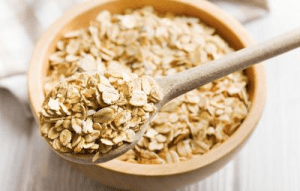Zwift: the Land of Hard Efforts
Did you know actual races happen on Zwift? That there are established teams who compete in things like the VR Worlds, CVR World Cup League, KISS Crit Series and more?
As a long-time racer outdoors, learning of these virtual (though pain is certainly not virtual) competitions came as a surprise to me. I was also surprised by how many people ride Zwift in workout mode, crushing it at 4-5 watts/kg one minute and chilling at 1.2 watts/kg the next.
Fueling is Crucial
With so many people pushing their physical boundaries, proper fueling is a crucial step to success. Anyone who has not fueled properly can probably attest to this! What people really don’t consider, however, is that your fueling for every ride begins after the previous ride.
Let’s tackle this one step at a time. This article will focus on pre-ride/race nutrition, which can begin 3-6 hours before your ride. The next article will consider during-ride nutrition, and the final in this 3-part series will discuss recovery nutrition. Considering all of these will help you not only perform better, but also recover more quickly.
As I mentioned in my last article on hydration, beginning hydrated is very important. If you feel like you have not had enough fluid after the last ride, supplement with 5-7 ml/kg of water within 4 hours before exercising.
While there are many theories out there regarding using carbohydrates vs. fats for energy, I will review the most accepted carbohydrate consumption timeline. That said, there is some very strong evidence indicating that fat-adapted athletes can be very effective in certain events… perhaps a good subject for a future article.
Carbs

There is some debate regarding which types of carbohydrates benefit athletes the greatest. Lower glycemic versus higher glycemic foods are often compared. That said, there seems to be no consensus which is better for your pre-ride meal . My advice? It is hard to go wrong with a large bowl of oatmeal several hours before an event. Many pro and amateur cyclists swear by this as a pre-race food.
Also, within an hour of your ride/race, eat another carbohydrate-containing food. Whether in drink or solid form, try to consume another 40-60 grams of carbohydrate. A Powerbar, a toaster pastry, or a couple of Bobo’s Bites would fit the bill.
A Word of Warning
Some people have a very strong insulin reaction to fast-acting carbohydrate (glucose) and need about an hour for their blood-glucose levels to stabilize. Others can eat carbs within a half hour of beginning exercise with no problem. Personally, if I eat this small carbohydrate meal anywhere between 5 minutes and 1 hour before exercise, I feel light-headed and weak. I even passed out in a race many years ago ago… just fell over during a fire-road climb. While Zwifting, I imagine you could just take a quick nap on the bars, but that defeats the purpose!
Protein

Fats
Fats tend to slow the digestive process and hamper carbohydrate ingestion. Fat adapted athletes will tell you that they don’t worry about eating as much before, during, or after their rides. While there are a few promising studies for those who prefer this way of eating, more research needs to be conducted on how effective fat-adaptation is in shorter-term intense activities.
Supplements
If you are trying to squeeze every last watt out of your riding, there are several safe and legal supplements that are widely marketed to the exercise community. If it seems there is interest in this area, I may even add a 4th article to this series.
For now, fuel up and ride on!
